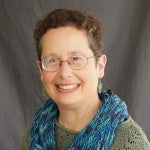UConn Professor Letitia Naigles focuses on language in typically developing children and children who have been diagnosed with autism
The Department of Communicative Disorders will to host Letitia Naigles Ph.D., a professor of Psychology at the University of Connecticut, for a fascinating presentation on language development in children with autism Jan. 31.
Naigles’ presentation, “What Variability in Children’s Language Reveals about the Psychological Processes of Language Acquisition: Evidence from Typical Children and Children with Autism Spectrum Disorder” will look at variability in child performance regarding language acquisition, revealing of the processes of children’s language acquisition, in both typically developing children and children with Autism Spectrum Disorder (ASD). The presentation is scheduled for Friday, Jan. 31, 2-3 p.m. in the Hardge Forum.
“Research usually focuses on when children ‘know,’ for example, the grammatical constructions and lexical principles of their language. Variability in child performance has been considered to be noise and/or a signal that better tasks/stimuli are needed,” Naigles said. “In this talk, I will argue that such variability is actually quite revealing. Language and communication impairments are considered to be an important deficit of ASD; however, it is not clear when during development these impairments emerge, nor the extent to which they can be attributed to impairments in core aspects of language per se vs. impairments in other social or cognitive processes.”
For the past decade, Naigles has conducted a longitudinal study assessing the language development of a group of children recently diagnosed with an ASD, whose language comprehension was assessed using an innovative method for this population, Intermodal Preferential Looking (IPL). In this talk, she will discuss IPL and speech data examining these children’s acquisition of grammar and vocabulary.
“I exploit their widespread variability to illuminate possible roles for social, linguistic input, and perceptual factors in their language development,” Naigles said. “I conclude by discussing the implications of these findings for advancing our understanding of autism and of language.”
Naigles’ research at UConn focuses on the interacting roles of linguistic input and linguistic/cognitive/social/neurological predispositions in children’s acquisition of word meanings, sentence structures, and discourse patterns. She considers both typically developing children and children who have been diagnosed with autism, and how the processes of language acquisition might vary with the specific language being learned.

